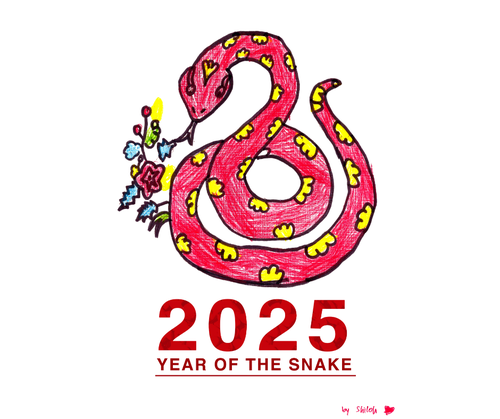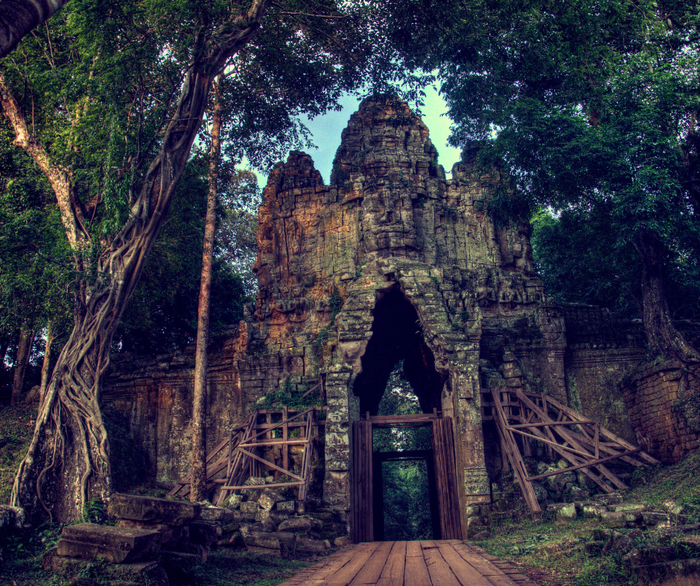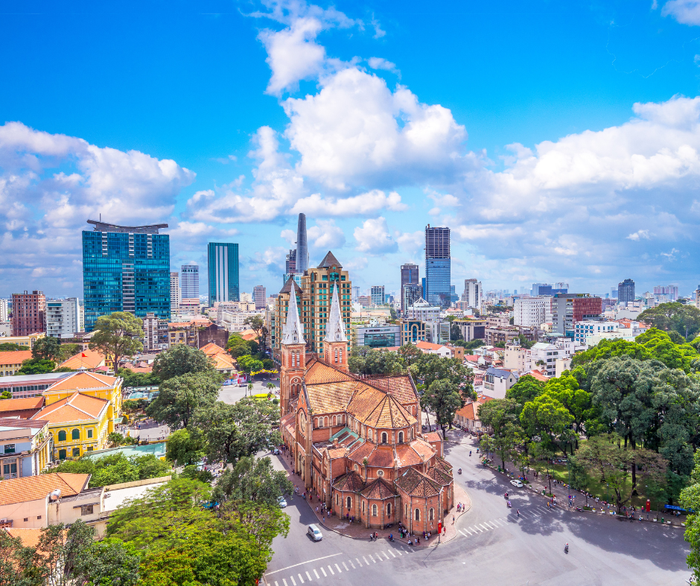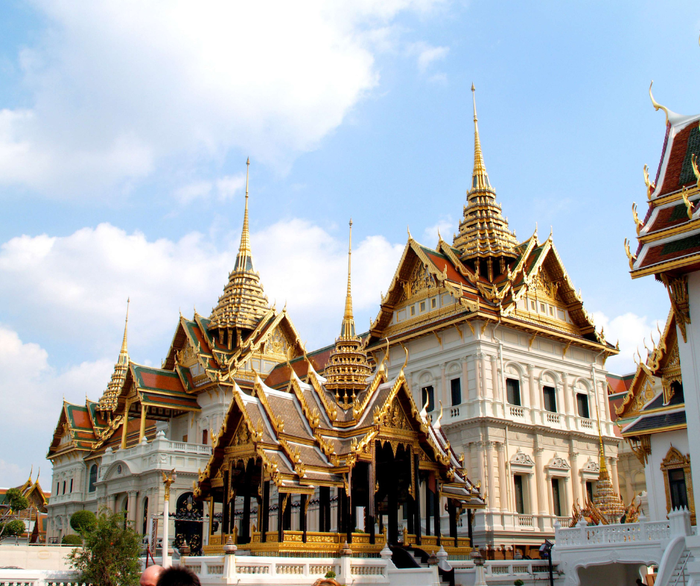Happy Lunar New Year!
Welcoming The Year of The Snake and its symbols of wisdom, adaptability, and good fortune.

Happy Lunar New Year from all of us at Asia Desk!
As we enter another exciting year of travel and exploration, we welcome the Year of the Snake! In some cultures, snakes represent evil and distrust. In Southeast Asia, however, the Year of the Snake symbolizes wisdom, adaptability, and good fortune.
These symbols constantly appear throughout Southeast Asia's history, culture, art, food, and people. Is the Year of the Snake the year you set off to explore and experience Southeast Asia?
We compiled a list of a few of our favorite sites across Cambodia, Vietnam, and Thailand that represent the Year of the Snake!

Wisdom: Angkor Wat in Cambodia
If you Google “most famous temple in Cambodia,” Angkor Wat will be at the top of your results, and for good reason. The breathtaking temple is considered the world’s largest religious structure. The carvings on its walls tell a great deal about Hindu history, and much of its wisdom can be applied to modern times.
Wisdom is represented throughout the temple through details like the physical design of the temples, imitating sacred mountains and holy sites across Cambodia.
The stories the carvings tell can also give us a glimpse into the deeper meaning of the symbols and etchings. For example, the Hindu myth, the “Churning of the Ocean of Milk,” is thought to illustrate the good that comes with cooperation and perseverance.
As with most historical sites and temples across the world, design and architecture are often layered with underlying meanings and symbols. Angkor Wat is no exception. The lessons the temple shares with us, paired with its vast beauty, is one of the many reasons it's on our “must-see” list for Asia Desk travelers heading to Cambodia.

Adaptability: Saigon (Ho Chi Minh City), Vietnam
Saigon, also known as Ho Chi Minh City, is one of the most adaptable cities in the world. Not only is it a modern and eclectic hub for travelers, transplants, and local Vietnamese, but the city’s history is rooted in adapting to other cultures while staying true to its Southeast Asian heritage and roots.
For most of the last thousand years, Saigon was mainly a Cambodian and Chinese city–in fact, it used to be part of the Khmer Empire.
Then, in the 19th century, Vietnam became a French colony, and the city was planned with a similar layout to Paris, with wide, tree-lined boulevards, an Opera House, and a cathedral. Even today, the city's French-style architecture, city planning, traditional Vietnamese markets, and religious symbols show how it adapted to the fusion of cultures.
Both during and after the Vietnam War, Saigon served as a central hub as the country of Vietnam experienced governmental changes. Through the political changes, the city stayed true to its reputation as an opportunistic location for both Eastern and Western cultures.
Saigon is a melting pot of different cultures, food, languages, and traditions. Its ability to adapt to challenges and changes has made it one of the world's most unique and culturally relevant cities.

Good Fortune: Traditions in Thailand
Thailand is considered one of the world's most superstitious countries, and there is no shortage of “good luck” charms. Tourists often have the opportunity to participate in Thai traditions that are thought to bring luck when visiting temples.
Whether visiting a well-known temple like Wat Phra Kaew in Bangkok’s Grand Palace or experiencing one of the lesser-known temples like Wat Chedi Luang in Chiang Mai, tourists can honor Thai customs and traditions while bringing themselves a bit of good fortune.
At Wat Phra Borommathat Doi Suthep in Chiang May, you can circle the temple and ring each of the lucky bells, which is said to increase your good karma. Not surprisingly, you’ll notice a bevy of lottery ticket vendors at the last bell!
When visiting a temple in Thailand, tourists should always make an offering - and it doesn’t have to be money! By leaving an offering such as flowers, candles, incense sticks, fruits and vegetables, and yes, a traditional monetary donation, tourists can walk away knowing that good blessings and karma are on their way.
Welcoming the Year of the Snake in Exotic Asia and Beyond!
Whether you’re planning to celebrate the Year of the Snake with us in one (or all) of our favorite Southeast Asian countries, or if you plan to join in on the celebrations from home, we wish you all a very happy Lunar New Year!
Are you interested in planning your luxury getaway to Southeast Asia? Fill out the form on the Enquire page, and Sandy, Nga, or Ethan will contact you!
